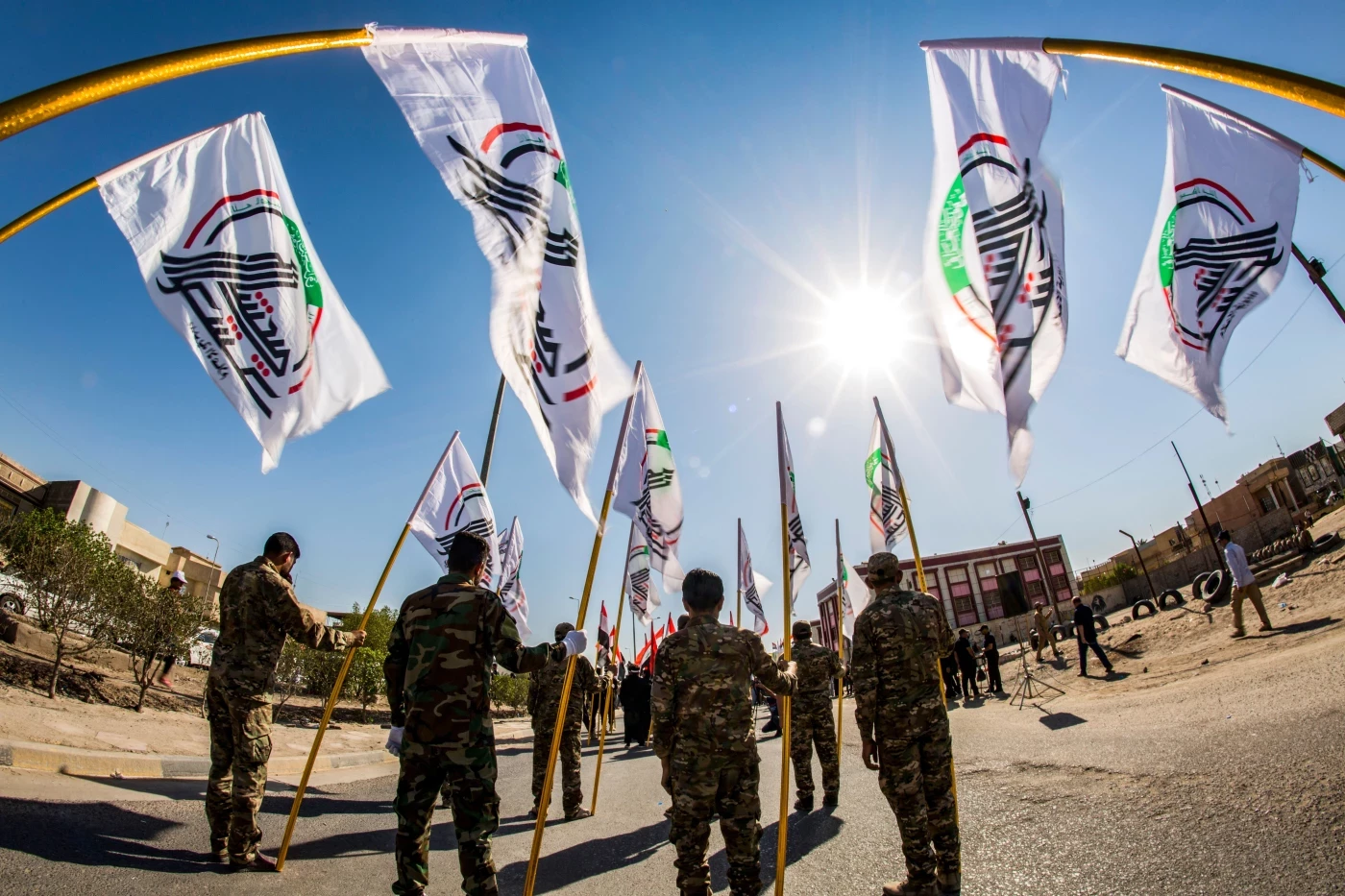ERBIL, Kurdistan Region of Iraq - The Popular Mobilization Forces (PMF) law continues to stir controversy in Iraq’s parliament, as lawmakers remain divided between supporters and opponents of its passage. Intense pressure from the United States and strong domestic opposition are seen as key reasons the proposed legislation remains off the parliamentary agenda, though some officials also cite ongoing political and technical disagreements.
MP Jawad al-Yasari explained why the PMF bill has not been added to recent parliamentary sessions, even though the security and defense committee recommended it for a vote.
Political and technical considerations
In a statement to The New Region, Yasari said, “The exclusion of the PMF law from the latest session’s agenda was due to several political and technical factors. There are still unresolved disagreements over the law's content between political blocs, preventing consensus on a final version acceptable to all parties.”
He noted that the goal of reaching national consensus and avoiding the passage of divisive laws without broad agreement was a key reason for the delay. “Specialized parliamentary committees are still reviewing the proposals and amendments submitted by various blocs. The law will be added to the voting schedule as soon as discussions are completed,” he said.
Yasari emphasized the need for legal recognition of the PMF and protecting the rights of its members. “This must be done through constitutional procedures and clear political agreements,” he said. “The parliament is committed to passing nationally prioritized laws, foremost among them the PMF law.”
US rejection and internal opposition
Meanwhile, Abbas al-Jubouri, head of the Rafid Center for Strategic Studies, attributed the bill’s continued absence from the agenda to “US rejection” and “internal opposition.”
Speaking to The New Region, Jubouri said, “Passing the PMF bill in its current form seems far-fetched under current local and international conditions. The US has clearly rejected any legislation that grants the PMF powers beyond the framework of the Iraqi armed forces. This comes amid regional and international concerns over the influence of armed factions.”
He added, “Opposition is not only external. There is also strong political resistance within Iraq from blocs and figures who believe that passing the law in its current form would institutionalize the duality of armed forces and undermine the state’s authority.”
Jubouri warned that “any attempt to pass the bill without genuine internal consensus and without addressing international concerns could lead to new political and security crises, and possibly trigger regional escalation or sanctions.”
He urged Iraqi leaders to carefully balance national sovereignty with the state’s higher interests. “This must be done away from sectarian pressures or narrow political calculations to ensure the state remains strong and unified,” he said.
PMF chief appeals for action
Recently, Falih al-Fayyadh, chairman of the Popular Mobilization Commission (PMC), made a public appeal to the parliament to vote on the divisive bill.
“To the members of the Iraqi parliament: In a moment that embodies loyalty and history, we are faced with a national responsibility, a matter that concerns the dignity of those who took up arms to defend Iraq and its sovereignty,” read the statement from Fayyadh.
“Voting on the PMF law is not just a legislative procedure. It is an expression of the nation’s gratitude to its fighters and a step to secure the rights of those who answered the call of the religious authority and wrote the nation’s glory with their blood,” he added.
High-ranking officials express concern
The parliament’s Second Deputy Speaker Shakhwan Abdullah has warned that passing the PMF law would “pose a serious threat to Iraq.”
Speaking to reporters on Saturday, Abdullah said, “Some laws are named after a particular group, but passing them harms all of Iraq. This message is understood not just by us [Kurds] but by both Sunnis and Shiites. Passing this law poses a serious threat to the country, and the warnings from different parties on this issue were clear. Therefore, now is not the right time to pass such a law.”
Also on Saturday, the head of the parliamentary security and defense committee Karim Aliwi al-Mohammedi signed off on including the PMF law on the agenda for that day’s session. However, the session was ultimately canceled after 164 members of the legislature failed to attend, leaving it without a quorum.
In a document obtained by The New Region, Mohammed directed a letter to the parliamentary presidency, formally requesting the inclusion of the draft law on the agenda.
US states its position
A US State Department spokesperson on Thursday told The New Region that Washington “remains deeply concerned” about pro-Iran components within the PMF, reiterating the US’ opposition to the bill.
“We remain deeply concerned about the role of Iran-aligned militia groups operating under the Popular Mobilization Forces umbrella, including US-designated terrorist groups and affiliated members,” read the statement from the spokesperson, warning that the groups’ engagement in “unlawful, destabilizing, and violent activities” compromises Iraq’s security and regional stability.
“These groups continue to engage in illegal, destabilizing, and violent activities, which undermine Iraq’s security and threaten regional stability,” the spokesperson said.
“The United States strongly opposes any legislation that is inconsistent with the goals of our bilateral security assistance and partnership and runs counter to strengthening Iraq’s existing security institutions and genuine Iraqi sovereignty,” they added.
The US has grown increasingly vocal in recent weeks regarding a bill that, if passed by the Iraqi parliament, would organize the PMC similarly to other state security and military agencies, granting them retirement rights and pensions offered to other members of the official Iraqi security apparatus.
“The bill further institutionalizes armed groups associated with terrorist entities and leaders, including some that have attacked US interests and killed US personnel. Passing this bill would be a deeply unhelpful step,” the spokesperson noted in Thursday’s statement.
In a phone call earlier in July, US Secretary of State Marco Rubio alerted Iraqi Prime Minister Mohammed Shia’ al-Sudani of Washington’s “serious” concerns with attempts to pass the controversial bill.



 Facebook
Facebook
 LinkedIn
LinkedIn
 Telegram
Telegram
 X
X


